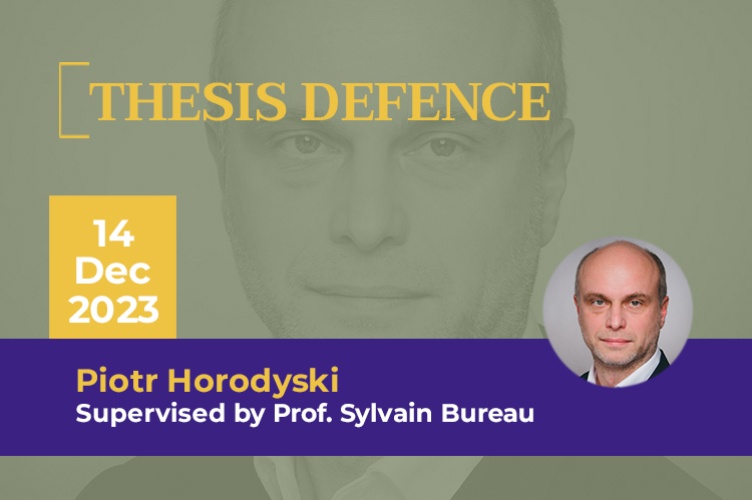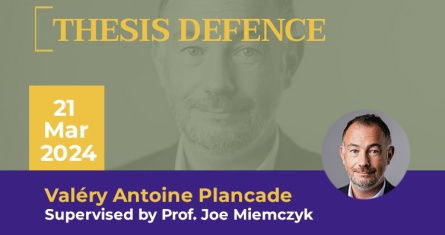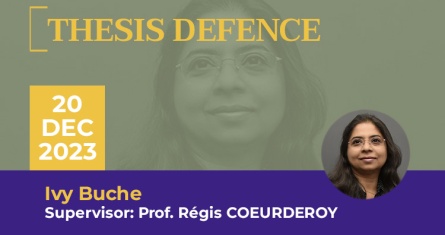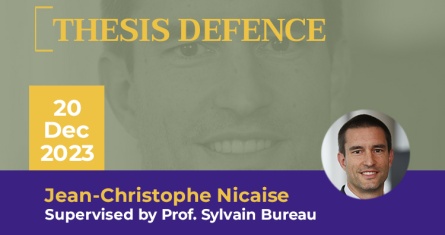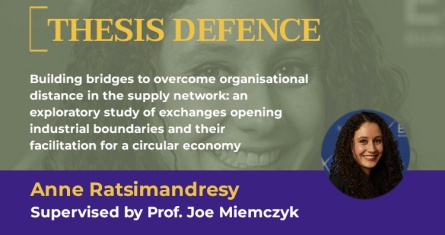Thesis Defence
Artificial intelligence (AI) in recruitment from the applicant's, recruiter's and company's perspective

Piotr Horodyski, PhD candidate in the Global Executive Ph.D., will publicly defend his thesis in Management Sciences.
14 December 2023
2 p.m. (CET - GMT+1)
ESCP Business School Paris Campus / Montparnasse
Room M6048
Abstract
Advances in AI technologies are also changing human resources and recruitment. However, the perception of these technologies by applicants, recruiters, and companies has received little attention in the literature. This thesis examines the perception of AI in recruitment and explores the unique AI perspectives and experiences of these three different stakeholder groups (applicants, recruiters, and companies).
This thesis is divided into three parts, with each paper exploring the AI perception of each group and contributing to a better understanding of the multifaceted landscape of AI perceptions in recruitment overall. The alignment between these three parts and their joint contribution to the overarching theme of the thesis is explained in the introductory chapter.
The introduction not only provides a thematic framework for the following papers but also explains recent developments in AI technology and sets the research approach's context.
The first part of the thesis looks at applicants' perceptions of AI hiring. The regression-based results using the Technology Acceptance Model (TAM; Davis, 1989) with 552 applicants showed that applicants perceive AI technologies as useful and easy to use. Above all, the shorter response time was cited as the most essential advantage.
The second part examines the intentions of recruiters to adopt AI tools using the Unified Theory of Acceptance and Use of Technology (UTAUT; Venkatesh et al., 2003). The hierarchical regression analysis with 238 recruiters revealed that the behavioral intentions to use AI are positively influenced by performance expectations and the frequency of AI use. Gender, age, experience, and education do not significantly influence these intentions. Efficiency gains, time savings, and automation were the main benefits.
Finally, the third part of the thesis provides insights into AI perceptions from the company's perspective using the Value-based Adoption Model (VAM; Kim et al., 2007) and a hierarchical regression analysis. The survey results of 275 companies showed that perceived usefulness, enjoyment, and cost significantly impact the adoption of AI in recruitment. The benefits of AI technology include the automation of repetitive tasks and increased efficiency in recruitment. The significant disadvantages of AI include the lack of human judgment, low accuracy and reliability, and immature technology.
By integrating these three technology acceptance models, this study provides a comprehensive understanding of the complex nature of AI perception in recruitment. It enables meaningful comparisons between the perspectives of candidates, recruiters, and companies. This methodological approach enhanced the depth and richness of the findings. It allowed for a robust and well-rounded examination of the complexities associated with adopting and using AI in recruitment across the various stakeholder groups. Furthermore, using such a broad participant base in mixed-methods research with three different technology acceptance models is novel in human resources, recruitment, and AI perception.
To the author's knowledge, this approach is unprecedented in the literature to date and constitutes a significant theoretical and practical contribution to the existing body of knowledge. The first and the second part of this thesis have been published in "Computers in Human Behavior Reports. " The first paper appeared in volume 11, published in August 2023 under reference number 100303. The second paper was released in volume 10, which appeared in May 2023, with the reference number 100298. Both publications are open-access article.
Jury
Supervisor:
- Pr. Sylvain Bureau
Professor, ESCP Business School
Referees & Suffragants:
- Pr. Maria Figueroa-Armijos,
Associate Professor, EDHEC Business School - Pr. Dorin Stanciu,
Associate Professor, Universitatea Tehnica Cluj-Napoca
Location
Organiser: ESCP Business School
Paris - France (or online)
MapDate
Start date: 14/12/2023
Start time: 2:00 PM
End time: 4:00 PM
